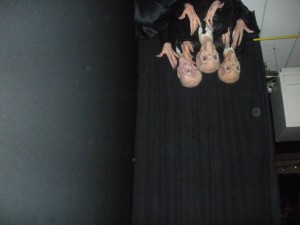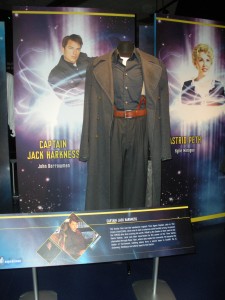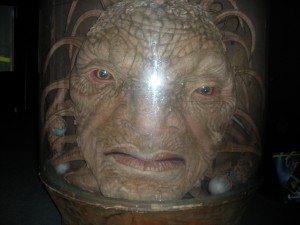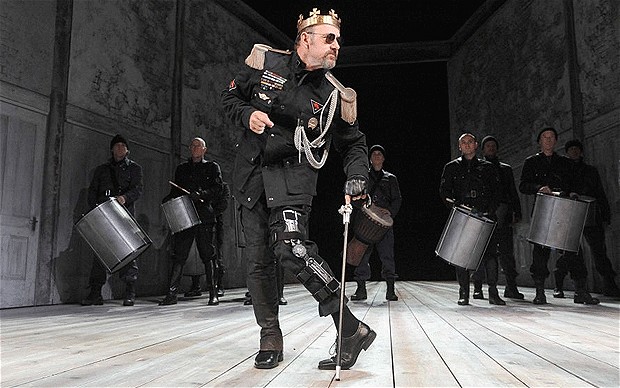Well, it’s Spring Break–so I’ve just finished grading my five classes, prepping for the four that start next Monday, and I’m in the middle of my annual IB grading.
But the boy and I are also heading down to WonderCon today (the only Con we’ll hit this year)–so we’ll get out of town, see some friends, and be somewhere I don’t have to feel guilty for not cleaning.
The quarter has been good, though. It was sad to say goodbye to my first ever graduate class (this was my second quarter with them) & my other classes were generally engaged.
Chris Higgins, author/college roommate, came down from Portland to give a talk as part of our Speaker’s Series, & I got some awesome people from the Berkeley lab to do the same.
Been hanging out a lot at Blackbird in Sacramento–so yummy, people!
Went to wine country twice–once to pick up some shipments with V & K (while there, we hit Turnbull, where I used to work and drank a lot. For free.)–and once with V & K & E & I to hit Turnbull’s blanc release party, complete with oysters and pulled pork sandwiches.
I threw an Oscar party, though not actually on Oscar night. You see, usually I have to run home to host the Oscar party after going to the Souper Bowl, but this year, I’d scored some concert tickets that night–so I ran to Napa after the Bowl. What concert was it? ALAN PARSONS PROJECT! As people who love me know, I love The Alan Parsons Project, and so it was a great pleasure to see them on the last night of the American tour with Ian (who graciously put up with me/it)–from the 4th row!
Melissa and Vanessa and I hit SF last month to see a world-premiere play, Dead Metaphor. The first act was really funny, but the second act wasn’t paced as well–still, it was fine. Unlike a certain student play I saw this term (cough.)
Haven’t been to the movie theatre much, but did see Zero Dark Thirty and Warm Bodies, which, in the words of Bridget Jones, is a searing vision of the wounds our century has inflicted on traditional masculinity. (Seriously, it is–it’s also got a little Romeo and Juliet thing going on.)
But really, the greatest thing about this quarter was that I was almost constantly with wonderful people, I got my work done, and I didn’t get bitten on the face by a spider (thought I did get knocked down a bit by the start of allergy season).
Next blog: WonderCon!










 Was going to add a picture of Rick and I, but I can’t get the uploader to work . . .
Was going to add a picture of Rick and I, but I can’t get the uploader to work . . .


Recent Comments